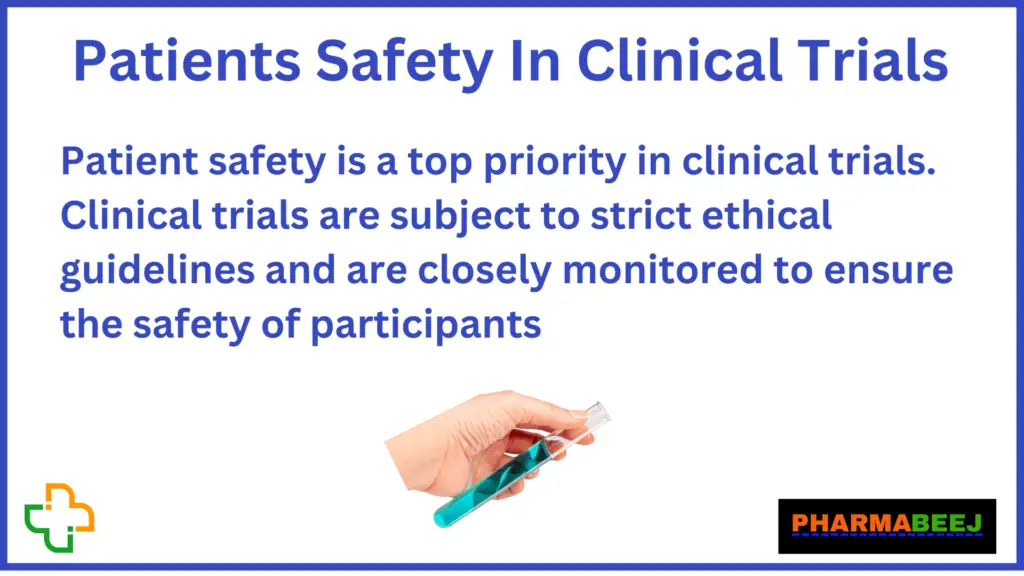Patient safety in clinical trials in pharma:
Patient safety is a top priority in clinical trials. Clinical trials are subject to strict ethical guidelines and are closely monitored to ensure the safety of participants. Here are a few ways in which patient safety is protected in clinical trials:
- Informed consent: Before participating in a clinical trial, individuals must provide informed consent, which means they must be fully informed about the purpose of the trial, the experimental treatment being tested, and the potential risks and benefits. Participants must also be given the opportunity to ask questions and have all of their concerns addressed before deciding to participate.
- Protocols: Clinical trials have strict protocols that outline the procedures and processes that must be followed. These protocols are designed to ensure the safety of participants and to ensure that the results of the trial are as accurate as possible.
- Monitoring: Clinical trials are closely monitored by medical professionals and regulatory agencies to ensure that they are being conducted ethically and that participants are safe. This may include regular assessments of participants’ health and monitoring for any adverse reactions to the experimental treatment.
- Reporting: Any adverse reactions or serious adverse events that occur during a clinical trial must be reported to the appropriate regulatory agencies. This helps to ensure that any potential risks to participants are promptly identified and addressed.
Overall, patient safety is a key consideration in the design and conduct of clinical trials, and measures are put in place to protect the safety and welfare of participants.
Here are a few additional points to consider when it comes to patient safety in clinical trials:
- Data safety monitoring boards: Many clinical trials have a data safety monitoring board (DSMB) in place to review the data collected during the trial and to ensure the safety of participants. The DSMB has the authority to stop a clinical trial if they determine that it is not safe to continue.
- Investigator responsibility: The investigator, who is the person responsible for conducting the clinical trial, has a duty to protect the safety of participants. This includes monitoring participants for any adverse reactions to the experimental treatment and taking appropriate action if necessary.
- Patient advocacy groups: Some clinical trials have patient advocates who represent the interests of the participants and ensure that their rights are protected. Patient advocates can help to address any concerns or issues that may arise during the course of the trial.
It is important for individuals considering participating in a clinical trial to understand that their safety is a top priority. They should feel comfortable asking questions and raising any concerns they may have about their participation in the trial. It is also important for individuals to understand that they have the right to withdraw from a clinical trial at any time if they feel uncomfortable or have concerns about their safety.

Also Read:
- FAQ on FDA’s Data integrity
- Karl Fischer Titration Interview Question and Answer
- How to do UV Calibration As Per USP In Pharma?
- How to prepare 0.1N HCl in pharma?
- What is clinical trial in pharma?
- What is Phase 1 clinical trial in pharma?
- The practices with data integrity risk (DI Risk)
Refer YT Channel: Pharmabeejpro